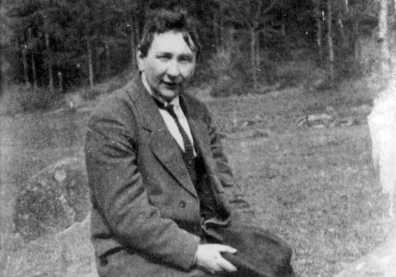The idiot as hero: the process of awareness in Jaroslav Hašek (Osudy dobrého vojáka Švejka za světové války) and Vladislav Vančura (Pekař Jan Marhoul)

Speaker
- Alfred GALL, University Professor, Johannes-Gutenberg University Mainz, Germany
Scientific event summary
The conference will look at communication strategies in literary texts that have the aim of raising political awareness. Two novels from Czech literature of the twenties of the XXe century will be analyzed in terms of their intention to draw attention to false social conditions. These include Jaroslav Hašek's novel Osudy dobrého vojáka Švejka za světové války (The Adventures of the Brave Soldier Švejk in the Great War), and Vladislav Vančura's Pekař Jan Marhoul (Jan Marhoul). The keystone of the conference is the central hero of both novels (Josef Švejk and Jan Marhoul respectively). These heroes are conceived as protagonists who act unconsciously within existing social conditions. But these social conditions are revealed and thus criticized precisely through the actions of the unconscious hero, who in Hašek's case is even openly described as an idiot. Both novels thus feature a process of awareness that takes place in reception. Awareness, then, comes exclusively during reading. Neither Josef Švejk nor Jan Marhoul succeeds in understanding the social circumstances in which they both find themselves. In a way, both texts play with the reader, the aim being to dramatize, as well as convey, situations that remain incomprehensible to the heroes of both novels. One of the theses of the conference is that Vančura distances himself in the representation of his hero (Jan Marhoul) from Hašek's novel and its corresponding hero (Josef Švejk), and even implicitly criticizes the novel The Adventures of the Brave Soldier Švejk by proposing another unconscious hero, i.e. another figure of the idiot.
The difference in point of view is crucial to the political dimension of both novels: on the one hand, we're dealing with unconscious heroes, on the other, the process of becoming aware takes place in reception, i.e. in reading. It is this difference that particularly contributes to the development of political awareness: the idiots portrayed in the two novels do not allow for deep identification, but their thoughts and actions provoke the reader to go beyond the main character's perspective, and thus contribute to understanding social conditions that remain incomprehensible, opaque and impenetrable to the heroes. The textuality of novels is therefore closely linked to the organization of the interaction between the perspective of the main characters and the very different perspective of the readers. By studying the interaction between these two perspectives, we aim to shed light on the significance of the literary figure of the idiot and help clarify the political function of literature.
Organization
- Catherine SERVANT (CREE, Inalco)
- Alena KOTŠMÍDOVÁ (CREE, Inalco)